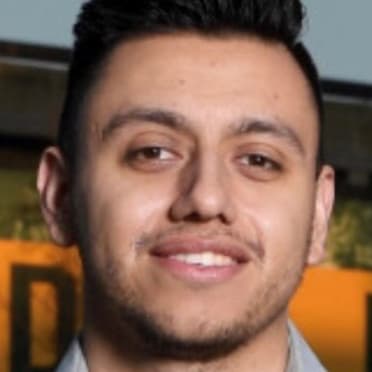A's Petit has apt pupil in prospect Luzardo
OAKLAND -- There isn’t a day that goes by when Jesús Luzardo doesn’t find himself looking to soak in some knowledge from Yusmeiro Petit.
From the time of his callup to the Major Leagues last September, Luzardo, Oakland’s No. 1 prospect per MLB Pipeline, had his locker in the clubhouse situated just a few stalls away from Petit. In Luzardo’s mind, Petit was an invaluable resource -- a blueprint for the 22-year-old rookie on how to go about his business in order to achieve the type of longevity carved out by Petit, who is now in his 13th Major League season.
The relationship between the two pitchers grew even stronger in February during Spring Training. Anywhere Petit was on the field or in the weight room, Luzardo was never too far away, coming up to him with questions or bouncing ideas off him.
“He’s kind of like a second dad for me,” Luzardo said. “He tells me what I should and shouldn’t do sometimes, and it’s all out of love. It’s cool.”
Petit quickly embraced Luzardo’s hunger for knowledge.
“He’s a very intelligent kid. He’s someone who pays attention to the little details,” Petit said. “He’s not just doing his job, he’s looking for the details that can stabilize him. He’s asked a lot of key questions about the game and how it all functions. That’s what impresses me the most about him.”
Luzardo’s eagerness evoked memories for Petit of a younger version of himself. Petit recalled being a 22-year-old on the D-backs in 2007, when veteran right-hander Livan Hernandez took him under his wing. At the time, Hernandez had been in the Majors for 12 years and was in the middle of reinventing himself after losing significant velocity on his fastball.
The focus of those sermons by Hernandez was how to make up for lost velocity with supreme command of pitches. It worked for Hernandez, as he finished his career with 17 Major League seasons under his belt.
“He saw that I was focused and gave me a lot of tips on those little details of the game,” Petit said of Hernandez. “He was losing his velocity and no longer throwing 96-97 mph as he did as a youngster in 1997 on the Marlins' World Series team. He explained to me that I needed to take in these tips, because that’s what will keep me in the game. And he was right. You can’t control your velocity, but you can control your command and [where] to place your pitches in spots where hitters fail more times than not.”
The similarities between Luzardo and Petit may not be evident on the surface. After all, Luzardo is a rookie left-hander who can light up the radar gun with the best of them, topping out around triple digits. Petit is a right-handed veteran who has never been known as a hard thrower. But in terms of the type of pitcher Luzardo aims to become, he sees Petit as the perfect model.
Luzardo doesn’t want to be that flame-throwing hotshot pitcher who can’t locate. That’s why he was more pleased with only walking three batters than he was about striking out 16 over 12 innings in his time with the A’s last September. Luzardo takes pride in limiting the walks, and he is always working to better command all five of his pitches -- a skill that will become even more important as he’s expected to move into the A’s starting rotation and make his first Major League start next week after two relief appearances to start the season.
Who better to learn from than Petit? The 35-year-old issued just 10 walks in 83 innings last season, leading all American League relievers with 1.08 walks per nine innings.
“The way he pitches and sets up hitters, the way he’s smart about pitching -- at the same time using his command without all the velo -- that’s something that I admire and take away from him,” Luzardo said. “I try to command all my pitches, because if I can command with more velocity, that’s going to help me out.”
Luzardo isn’t the only young A’s pitcher going to Petit for advice. Chris Bassitt has adopted Petit’s workout routine, which includes running the stadium stairs during pregame. Frankie Montas also goes to the veteran with questions.
It took Petit a practical banishment from the Major Leagues after the 2010 season before he figured out how to find success. No teams came calling with a contract. and he played a season in Mexico in '11. But with that came a wealth of learning experiences that can be passed down to others.
Petit refuses to label himself a mentor. He’s more of a guidance counselor, seeking to help younger pitchers find a path to success quicker than he did.
“I like to help pitchers,” Petit said. “If someone asks me something about their command, I feel I have enough knowledge to give advice to guys. If they consider me a mentor for that, then I feel proud. I just want to help them so their road they have to take in this game is less difficult than mine. I had a hard path because I didn’t have a lot of help.”
There is something a little more special about Petit’s connection to Luzardo, though. With Luzardo’s parents hailing from Petit’s hometown of Maracaibo, Venezuela, a city Luzardo often visited as a kid, Petit feels a sense of pride when it comes to helping out the young lefty.
“He comes from the same city as me. I’m proud of the work he’s doing,” Petit said. “I’m behind him 100 percent and give him pointers. I’ll try to keep him on the right path.”
